Choosing the best crypto exchange in the USA can be challenging, especially with so many platforms competing for users. In 2025, the crypto world faces evolving regulations and growing institutional involvement, making finding an exchange that balances security, compliance, and user experience increasingly crucial. Whether you are new to crypto trading or an experienced trader looking for advanced features, understanding each platform’s strengths will help you zero in on the perfect match.
In this important exploration, we’ll guide you through the details of each of the top crypto exchanges. We’re going to cover their fees and features, as well as look at how American crypto regulations shape the trading environment. By the end, you will have the insights needed to navigate the vast crypto marketplace confidently.
List of Best Cryptocurrency Exchanges in USA
- Binance – Best crypto Exchange for High Trading Volumes
- Gemini – Best for Strong Regulatory Compliance
- crypto.com – Best Exchange for Comprehensive Ecosystem
- Kraken –Best Platform for Advanced Trading Tools
- Coinbase – Best crypto Exchange for Beginners
- eToro – Best Platform for Social Trading Features
- Robinhood – Best Exchange for Zero-Commission Trades
Comparison of Best US crypto Trading Platforms
| Platform | Trading Fees | Coin Range | Key Features |
| Binance | Maker/taker starts at ~0.10% for spot trades, dropping with higher volumes; additional discounts if paying fees in BNB. | Extensive for global users, somewhat reduced for Binance.US | Known for large daily volume and advanced order types, though U.S.-specific regulations limit certain features compared to the international version |
| Gemini | Basic trades can be ~1.49%. ActiveTrader tiers up to ~0.35% maker/taker | Moderate; includes mainstream and mid-cap coins | Emphasizes robust regulatory compliance and insurance. Offers both a simple interface and an advanced trading panel for experienced users |
| crypto.com | Begins near 0.40% maker/taker for smaller traders, discounted with CRO staking | Wide selection including popular altcoins and DeFi tokens | Multi-service ecosystem covering trading, staking, a Visa card, and various DeFi functions, all accessible via a convenient mobile app |
| Kraken | Tiered maker-taker model from ~0.26% at lowest volumes, dropping with higher trading levels | Large, including margin and futures markets | Long-standing U.S.-based exchange with strong security credentials and optional advanced features such as margin trading and futures |
| Coinbase | Simple purchases often reach ~1.49%. Advanced Trade uses a maker-taker model up to ~0.60% | Medium range but well-researched tokens | Publicly traded company known for ease of use, insured custody, and thorough regulatory compliance. Often chosen by first-time crypto buyers |
| eToro | Zero “commission” marketing, though typically ~1% spreads baked into the buy/sell price | Decent offering of major cryptos, fewer low-cap assets | Social trading focus: users can replicate trades from top investors. Includes non-crypto assets like stocks and ETFs for a broader investing experience |
| Robinhood | No direct trading commissions, but trades include a spread that can be less transparent | Limited to a handful of major coins | Aimed at casual users seeking quick, small purchases. Simple mobile interface, though advanced order types and altcoin selection are quite restricted |
7 Best US crypto Exchanges in 2025 – Detailed Review
1. Binance – Best crypto Exchange for High Trading Volumes
Binance is a global leader among cryptocurrency exchanges, boasting high trading volumes and a vast selection of crypto assets. The U.S. variant, Binance.US, operates under separate regulations but still offers numerous trading pairs for American users.
One of Binance’s main attractions is its tiered fee structure, which rewards traders with reduced fees as they achieve higher trading volumes. This system appeals to experienced or high-frequency traders seeking a cost-efficient environment. The exchange integrates advanced charting tools, spot trading, and limited access to margin and futures for qualifying users. Binance’s platform supports a wide range of order types, including stop-limit and OCO, or, “one cancels the other”.
When it comes to security measures, Binance enforces two-factor authentication and stores a significant portion of user funds in offline cold storage. Though Binance has faced challenges around licensing in certain jurisdictions, it remains a popular choice for crypto traders who value low fees, a large coin selection, and active markets. By focusing on liquidity and competitive maker-taker fees, Binance offers a balanced platform for both casual users and seasoned investors interested in robust market depth.

2. Gemini – Best for Strong Regulatory Compliance
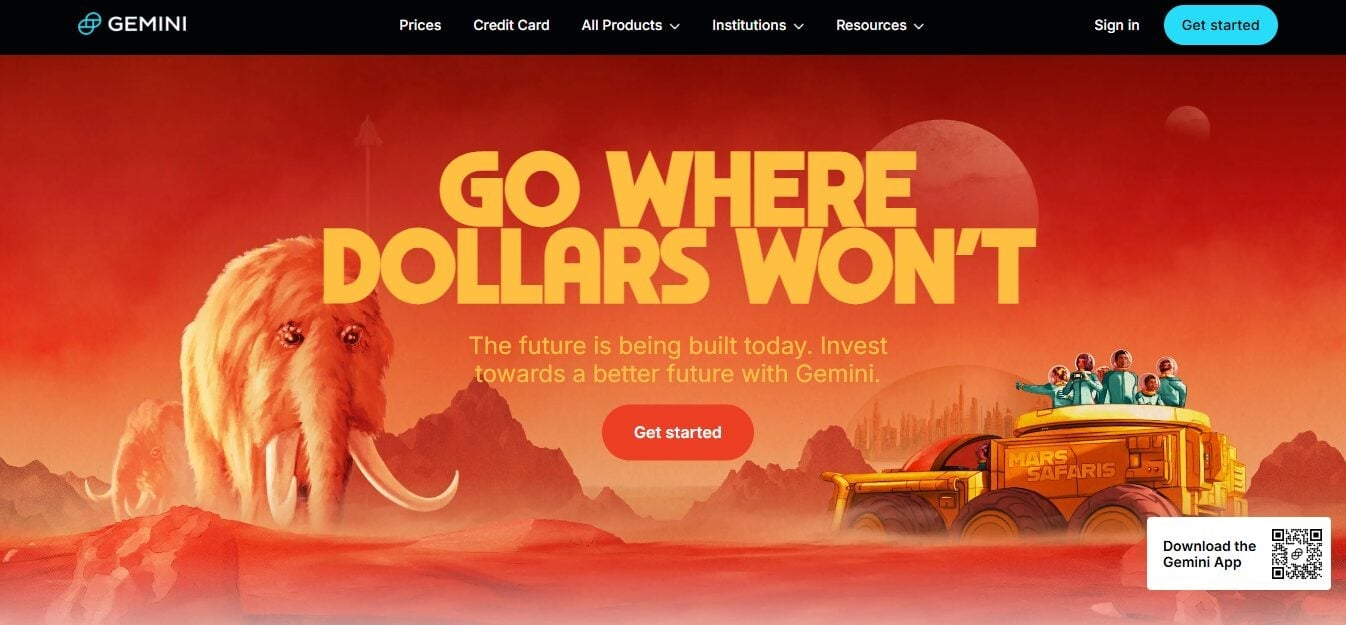
Founded by Cameron and Tyler Winklevoss, Gemini is recognized for stringent compliance with U.S. regulations and a commitment to robust security. It positions itself as a go-to choice for users who prioritize a trustworthy environment where user assets benefit from a blend of offline storage and insurance coverage. Gemini also implements strict identity verification steps, ensuring compliance with anti money laundering laws.
The exchange provides a straightforward interface suitable for new traders. However, it also caters to advanced needs through its ActiveTrader platform, which includes detailed charting, multiple order types, and competitive trading fees if you meet certain volume thresholds.
Gemini supports various payment methods, including wire transfers and linked bank accounts, making fiat onboarding simpler. The coin selection is not as expansive as some competitors but covers many mainstream and mid-cap tokens. Gemini Earn, a feature within the ecosystem, allows users to lend digital assets in exchange for interest payments, adding an extra incentive for those who wish to hold rather than trade frequently.
Fees may be on the higher side for low-volume trades, so frequent traders should evaluate how these costs compare to other platforms. Overall, Gemini appeals to those valuing regulation, security, and an institutional-grade experience over the widest array of altcoins.
3. crypto.com – Best Exchange for Comprehensive Ecosystem
crypto.com-website.jpg” alt=”crypto.com” width=”1351″ height=”639″ srcset=”https://technicalterrence.com/wp-content/uploads/2025/01/Best-Crypto-Exchanges-in-the-USA-for-January-2025″https://technicalterrence.com/crypto/”>crypto.com-website.jpg 1351w, https://technicalterrence.com/wp-content/uploads/2025/01/Best-Crypto-Exchanges-in-the-USA-for-January-2025″https://technicalterrence.com/crypto/”>crypto.com-website-300×142.jpg 300w, https://technicalterrence.com/wp-content/uploads/2025/01/Best-Crypto-Exchanges-in-the-USA-for-January-2025″https://technicalterrence.com/crypto/”>crypto.com-website-1024×484.jpg 1024w, https://technicalterrence.com/wp-content/uploads/2025/01/Best-Crypto-Exchanges-in-the-USA-for-January-2025″https://technicalterrence.com/crypto/”>crypto.com-website-768×363.jpg 768w” sizes=”(max-width: 1351px) 100vw, 1351px”/>
crypto.com aims to be an all-in-one portal for crypto enthusiasts by offering trading, earning, and spending services under a single umbrella. Its user-friendly mobile app provides straightforward fiat on-ramps for U.S. consumers and allows quick purchases of popular coins.
In addition to spot trading, the platform features credit and debit card integration, making it easy to deposit and withdraw funds. Users seeking more advanced features can access crypto.com Exchange, which offers various order types and competitive fees tied to the platform’s native CRO token and Cronos network.
One notable advantage is the crypto.com Visa Card, a prepaid card that rewards spending in digital assets, effectively bridging everyday purchases with crypto holdings. The exchange also includes a DeFi wallet for users interested in decentralized finance, letting them stake or farm tokens directly from the app.
crypto.com’s fee structure can vary depending on trading volume and CRO token staked. High-volume traders or those with substantial CRO staked enjoy lower maker-taker fees. The brand’s substantial marketing campaigns, including sports sponsorships, highlight its desire to serve mainstream audiences, balancing ease of use with diverse crypto features.
4. Kraken – Best Platform for Advanced Trading Tools
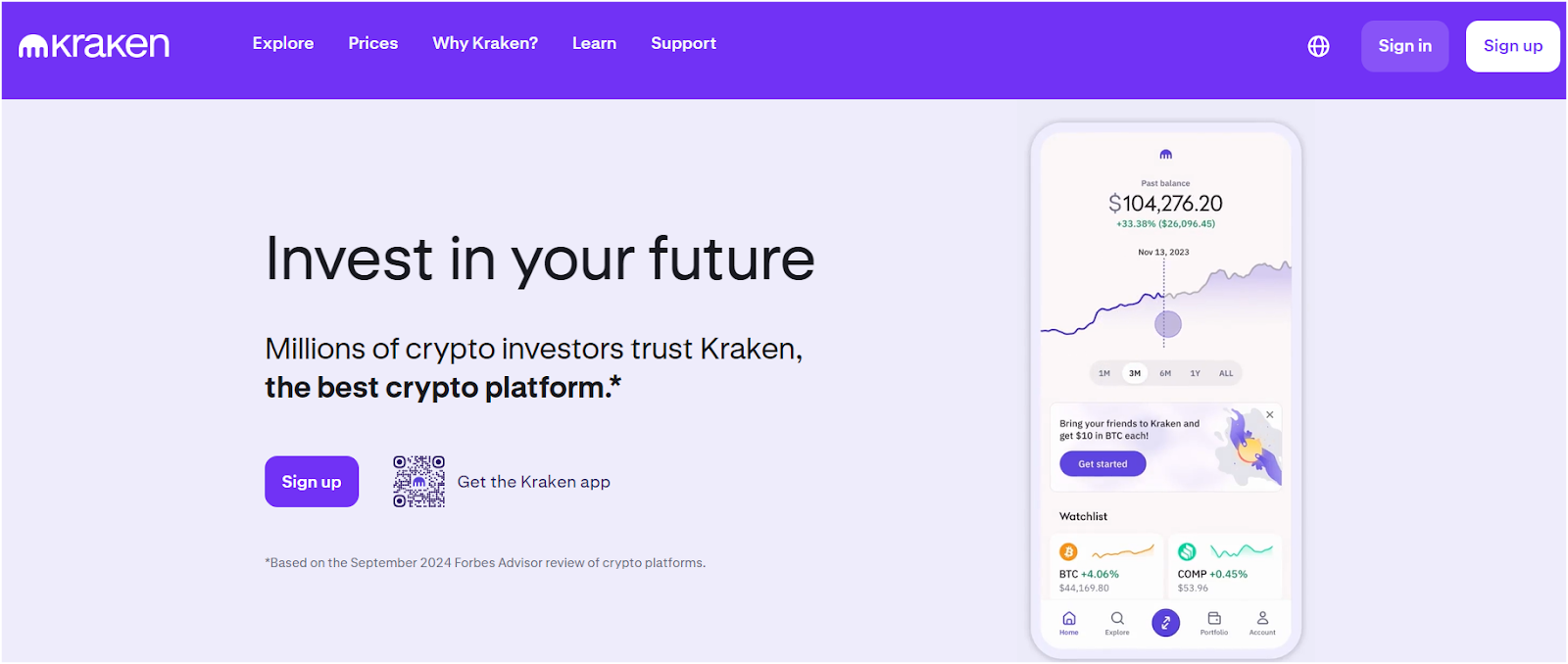
Kraken, founded in 2011, is one of the oldest U.S.-based cryptocurrency exchanges. Over the years, it has built a reputation for strong security measures, such as offline cold storage and regular proof-of-reserve audits that demonstrate its ability to cover user deposits.
Thanks to a versatile interface, Kraken appeals to both novice and advanced traders. Beginners can use the simplified Kraken dashboard, while experienced traders can shift to Kraken Pro for advanced charting, margin trading, and futures contracts. It also supports a wide range of digital assets, from major coins to more niche tokens, giving users broad exposure to different segments of the crypto ecosystem.
Kraken enforces two-factor authentication to safeguard accounts and also encourages the use of a unique Master Key and Global Settings Lock to protect user configurations. This multi-layered security approach provides added confidence in safeguarding funds.
Kraken’s trading fees follow a tiered maker-taker model, where high-volume participants enjoy lower rates. The platform also distinguishes itself by offering spot trading pairs in several fiat currencies beyond USD.

5. Coinbase – Best crypto Exchange for Beginners
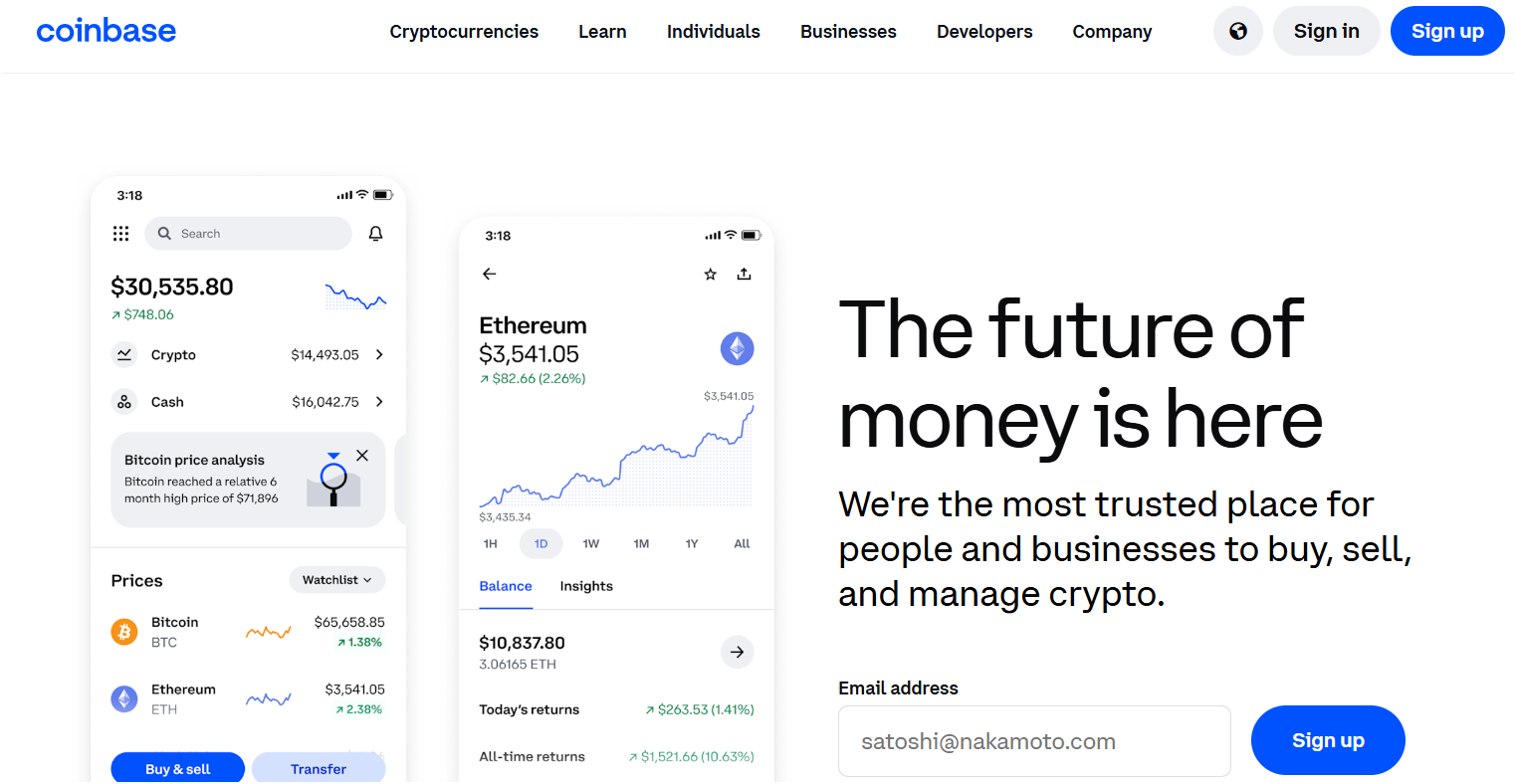
Coinbase is one of the most recognized names in the crypto space, famed for guiding millions of newcomers through their first bitcoin purchase. Its flagship interface offers effortless usability, featuring clear prompts and a streamlined layout designed to minimize confusion. Users can link a bank account or credit card for quick and simple transactions.
On the other hand, traders seeking more dynamic order types can switch to Coinbase Advanced Trade, which unlocks limit, stop, and margin features in a separate interface.
Because Coinbase is a publicly traded company, it maintains a high level of transparency. The platform deploys offline storage for the bulk of user funds and insures some portion against cybersecurity breaches. Coinbase also takes pride in keeping a smaller set of approved tokens, each undergoing thorough legal and security vetting. This approach helps mitigate user confusion but may limit options for those interested in emerging altcoins.
Fees can be a drawback, particularly for smaller trades or credit card purchases. Nevertheless, the brand’s reputation for strong compliance and dependable functionality stands out in an environment where regulatory oversight intensifies yearly. Coinbase is well-suited for newcomers who value simplicity, an insured custody model, and the peace of mind that comes from working with a large, publicly accountable entity.
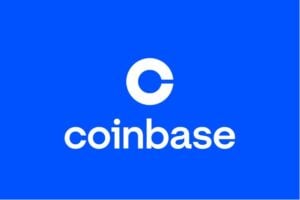
6. eToro – Best Platform for Social Trading Features
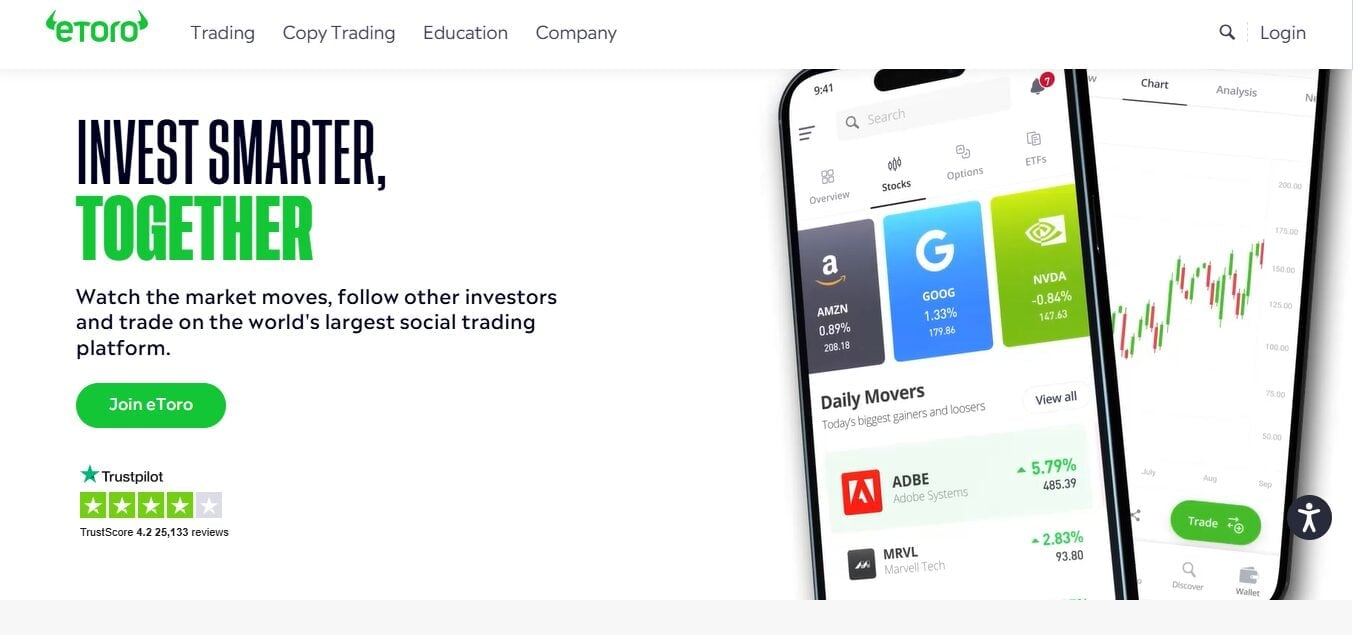
eToro combines crypto trading with social features that let users mimic the moves of seasoned traders. This “copy trading” approach has proven popular among newcomers, who can observe top-ranked investor portfolios and replicate their strategies in real-time. eToro also offers a user-friendly dashboard for direct crypto purchases, employing a quick-swipe interface that feels familiar to those with prior experience in online stock trading.
The platform’s main focus historically revolved around conventional asset classes like stocks and ETFs, but it has broadened its offerings to include a decent selection of digital assets. While not as extensive as Binance’s roster, eToro’s crypto list covers well-known coins such as bitcoin, ethereum, and Cardano. Users can fund their accounts with USD via wire, ACH transfer, or credit card, although transaction fees vary by method.
eToro adheres to U.S. regulatory requirements by providing identity verification and ensuring compliance with relevant guidelines. The social trading element sets it apart, fostering community-driven insights that can shorten a beginner’s learning curve.
That said, the copy trading feature is not risk-free; novices can still face losses if the “expert” they follow encounters sudden market downturns. In sum, eToro excels in bridging standard trading methods with a collaborative crypto environment.

7. Robinhood – Best Exchange for Zero-Commission Trades
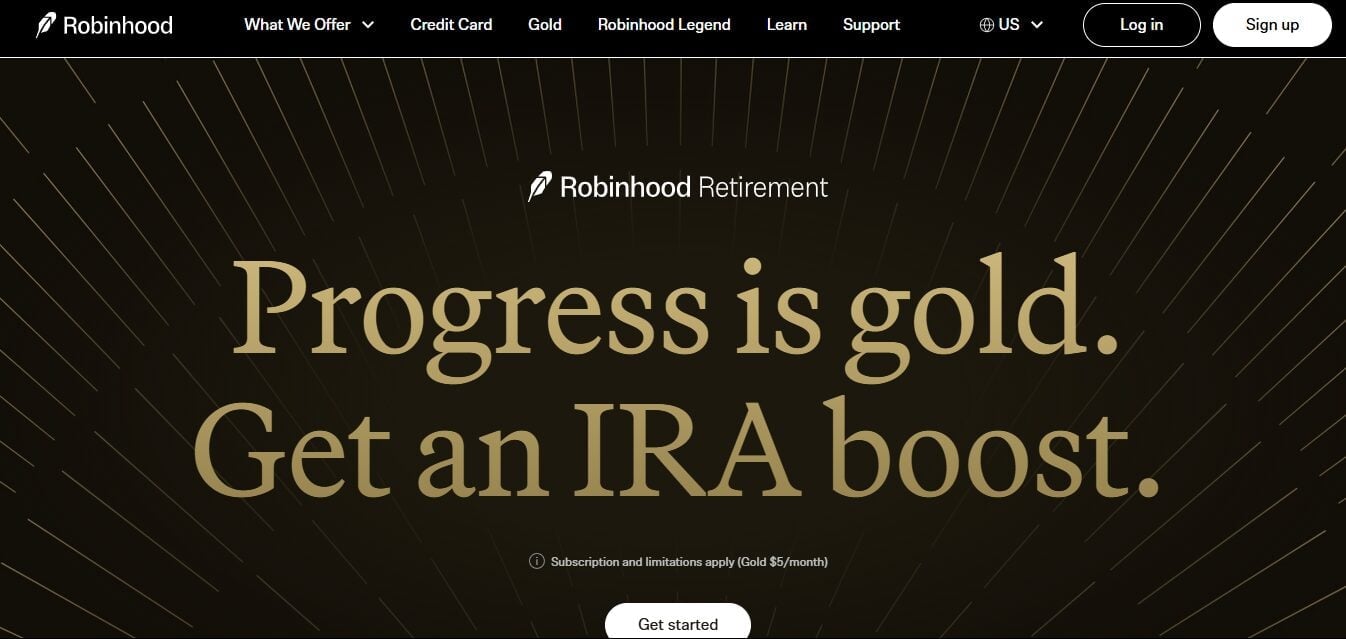
Robinhood initially gained fame by offering zero-commission stock trades, a feature that extended to cryptocurrencies. This pricing model appeals to hobbyists who aim to make small, straightforward buys in major assets like bitcoin or ethereum without piling up fees.
The Robinhood mobile app focuses on simplicity, presenting a clean interface that conceals much of the complexity of crypto trading. Users can link a bank account for quick deposits and withdrawals, eliminating the need to manage separate wallets or complicated deposit addresses. Robinhood’s wallet functionality, once absent, has gradually improved, though it may still lag behind specialized exchanges in terms of advanced security measures or in-depth custodial options.
Robinhood does comply with U.S. regulations, requiring full know-your-customer verification before users can trade. While its user base appreciates the zero-commission structure, the spread on trades can be less transparent than a standard maker-taker fee schedule. When it comes down to it, Robinhood is convenient for casual buyers stepping into crypto for the first time, though power users often gravitate to more feature-rich platforms for serious trading endeavors.
How to Choose a crypto Exchange for Americans
Finding the best crypto exchange in USA can feel overwhelming, but focusing on a few core factors will narrow down your options.
Payment Methods
Check whether a platform supports the payment method you prefer, such as bank transfers, debit or credit cards, and third-party services like PayPal. Some exchanges only accept wire transfers, while others provide instant ACH transactions. A convenient on-ramp should also include quick settlement times and minimal transaction fees, letting you move from USD to crypto and back again, without unnecessary friction.
Security
Look for robust security features like two-factor authentication (2FA), cold storage for user assets, and auditing or proof of reserves. Avoid platforms with a history of major security breaches.
Also, pay attention to whether the exchange provides insurance coverage for custodial wallets. Since you trust the exchange with your funds, strong security protocols are vital for protecting both accounts and crypto holdings.
Supported Cryptocurrencies
If you plan to trade a particular altcoin, ensure it is available on the platform. Some exchanges focus on mainstream options such as bitcoin, ethereum, and stablecoins, whereas others cater to a broader market including DeFi tokens or smaller-cap projects. Choose based on your crypto interests and trading goals.
Trading Fees
Fees vary widely across platforms. Maker-taker schedules often reward higher-volume traders with lower rates, while flat-fee structures may benefit casual users. Some exchanges offer discounts if you pay fees in their native token.
Always review deposit, withdrawal, and trading charges. Even if an exchange advertises zero commission, hidden spreads might still affect the final purchase price. Balancing low fees with reliable service is key to retaining more of your profits.
Regulatory Compliance
U.S.-based platforms must comply with federal and state regulations, including anti-money laundering and know-your-customer guidelines. This means you will undergo identity verification before starting to trade.
Check if the exchange holds relevant licenses, such as BitLicense in New York, to ensure it can operate in your jurisdiction. Choosing a compliant exchange helps protect you from potential legal issues and fosters a safer trading environment.
Ease of Use
An intuitive interface can be a deciding factor, especially for newcomers. See whether the platform offers a simple dashboard or advanced charting tools for more experienced traders. Review how quickly you can navigate order placements and track your balance. Exchanges with user-friendly apps often streamline notifications, price alerts, and deposit tracking, minimizing guesswork.
As your skills grow, you may want an exchange that also supports more sophisticated features, so aim for one that can accommodate your evolving needs.
Different Types of crypto Exchanges in the USA
Centralized Exchanges (CEX)
Centralized exchanges are run by a company acting as a middleman between buyers and sellers. These platforms typically require users to create an account, complete identity verification, and keep funds in the exchange’s custody. CEXs often offer robust liquidity, quick execution, and user-friendly dashboards, making them popular among both beginners and experienced traders.
However, user funds are exposed to risks if the platform experiences security breaches or mismanages assets. Still, many major centralized exchanges hold licenses or registrations that adhere to U.S. regulations, providing reassurance that they operate legally and follow established compliance protocols.
Decentralized Exchanges (DEX)
Decentralized exchanges remove the need for a central authority to match orders or hold user funds. Instead, they rely on smart contracts that facilitate peer-to-peer trading. This structure gives you control over your private keys and reduces the likelihood of large-scale hacks, although transaction times and fees may depend on network congestion.
DEXs often enable trading in tokens that might not appear on centralized platforms, appealing to niche markets. DEX liquidity can also be less consistent, which can result in bigger spreads for certain low-volume tokens.
Futures Exchanges
Futures exchanges let users trade contracts that speculate on an asset’s future price rather than buying the asset outright. By using leverage, traders can amplify potential gains or losses, increasing both opportunity and risk. Popular futures platforms sometimes offer features like partial liquidation and cross-margin to manage sudden price movements. These exchanges typically require users to lock in a margin of stablecoins or other crypto for collateral.
Margin Trading Exchanges
Margin trading involves borrowing funds from the exchange to increase your buying power, allowing you to open larger positions than your original balance would permit. Many top centralized exchanges in the U.S. offer margin trading for select coins, subject to regulatory constraints and user eligibility. Interest rates apply to borrowed funds, so weigh potential profits against these costs.
Derivatives Exchanges
Derivatives exchanges expand beyond futures, offering products like options and perpetual swaps. With options, traders can buy or sell the right (but not the obligation) to trade specific amounts of cryptocurrency at set prices. Perpetual swaps function similarly to futures without an expiration date, relying on a funding rate mechanism. Yet high leverage and complex contract terms mean even small market fluctuations can result in significant losses.
How to Sign up for a Cryptocurrency Exchange Account in the U.S.
- Research and choose: Pick an exchange based on fees, security, available coins, and compliance with your state’s regulations.
- Register: Visit the platform’s website or mobile app, then select the option to create an account.
- Undergo identity verification: Provide personal details, upload documents, and wait for approval to meet KYC guidelines.
- Secure your account: Enable two-factor authentication and use a strong password.
- Connect a payment method: Link your bank account or card for deposits and withdrawals.
Deposit funds: Transfer USD into your account. - Start trading: Explore the interface, place orders, and track your portfolio.
American crypto Regulations
Regulations in the United States play a major role in shaping how crypto exchanges operate and how users buy, sell, and hold digital assets. Authorities like the Securities and Exchange Commission (SEC) and the Commodity Futures Trading Commission (CFTC) oversee different segments of the market, each focusing on its own regulatory scope.
State-by-state rules also matter. For instance, New York’s BitLicense is a well-known example of strict oversight, requiring detailed disclosures and compliance measures for any company offering cryptocurrency services within the state’s borders. As a result, certain exchanges restrict or modify features for New York residents if they choose not to fulfill BitLicense prerequisites.
This year, lawmakers and regulators will be working toward clearer frameworks that differentiate between tokens considered securities and those viewed as commodities. The classification can dictate whether a project must register with the SEC or whether the CFTC oversees it as a commodity market.
Beyond licensing, there is also an emphasis on stablecoin regulation, given that many U.S.-based traders use stablecoins as a substitute for traditional fiat deposits. Proposed guidelines aim to require stablecoin issuers to hold reserves in high-quality, liquid assets, providing more confidence for consumers using stablecoins for trading or transfers.
Conclusion
Finding the best US crypto exchange comes down to matching personal needs with each platform’s strengths. Some prioritize minimal fees or advanced trading options, while others highlight top-notch security and regulatory compliance.
Always weigh the pros and cons, from fee structures to the range of supported assets and deposit options. By keeping an eye on evolving regulations and comparing the prominent players, you can pick a reputable exchange that supports your goals in the crypto market.
FAQs
What are the safest crypto exchanges for beginners?
An exchange with robust security protocol, simple interfaces, and strong compliance is often best for newcomers. Many recommend Coinbase or Gemini for their user-friendly platforms, offline cold storage, and solid regulatory backgrounds that help ensure safer, more reliable trading conditions.
Which bitcoin wallet is the best in the USA?
There are a ton of bitcoin wallets out there, so it depends on what you’re looking for. For reliability, hardware wallets like Ledger or Trezor offer offline storage and better defense against cyber threats. However, many American users also use Coinbase Wallet or MetaMask for everyday convenience, balancing accessibility with decent built-in security features.
Which crypto exchange has no fees?
Robinhood famously charges zero direct trading commissions, though it incorporates a spread into buy and sell prices. eToro advertises commission-free crypto trades but similarly, structures spread into transaction costs. Always look at spreads or hidden fees, as true zero-fee trading is rare.
Can You Buy bitcoin and Other Altcoins With USD Directly?
Yes, most U.S.-based exchanges let you deposit dollars through ACH transfers, debit cards, or wire transfers and then buy bitcoin, ethereum, and other altcoins instantly. Check which payment methods the exchange supports and any extra fees that might apply.
Which crypto exchanges support USD?
Almost every major U.S. platform supports USD deposits, including Binance.US, Coinbase, Gemini, Kraken, and others. Each one offers various payment channels like bank transfers, credit cards, or debit cards, although availability may vary by state or local regulations.
Do US crypto exchanges offer staking or earning opportunities?
Yes, many have staking or yield programs. Coinbase and Binance.US let users lock coins to earn rewards, while crypto.com provides interest-bearing solutions. Availability depends on local rules, so some states may have limited access to these features.
Are there any crypto exchanges in the USA that support tax reporting?
Several, including Coinbase, Gemini, and Kraken, give downloadable transaction histories or direct integrations with tax software. These tools simplify generating capital gains or losses reports, easing the filing of accurate tax returns in line with U.S. regulations.
Can I use a crypto exchange in the USA without completing KYC verification?
U.S. law generally requires identity verification to comply with anti-money laundering standards. Some decentralized exchanges do not demand full KYC, but mainstream centralized platforms ask for personal details. Operating anonymously on big U.S. exchanges is usually not permitted.






